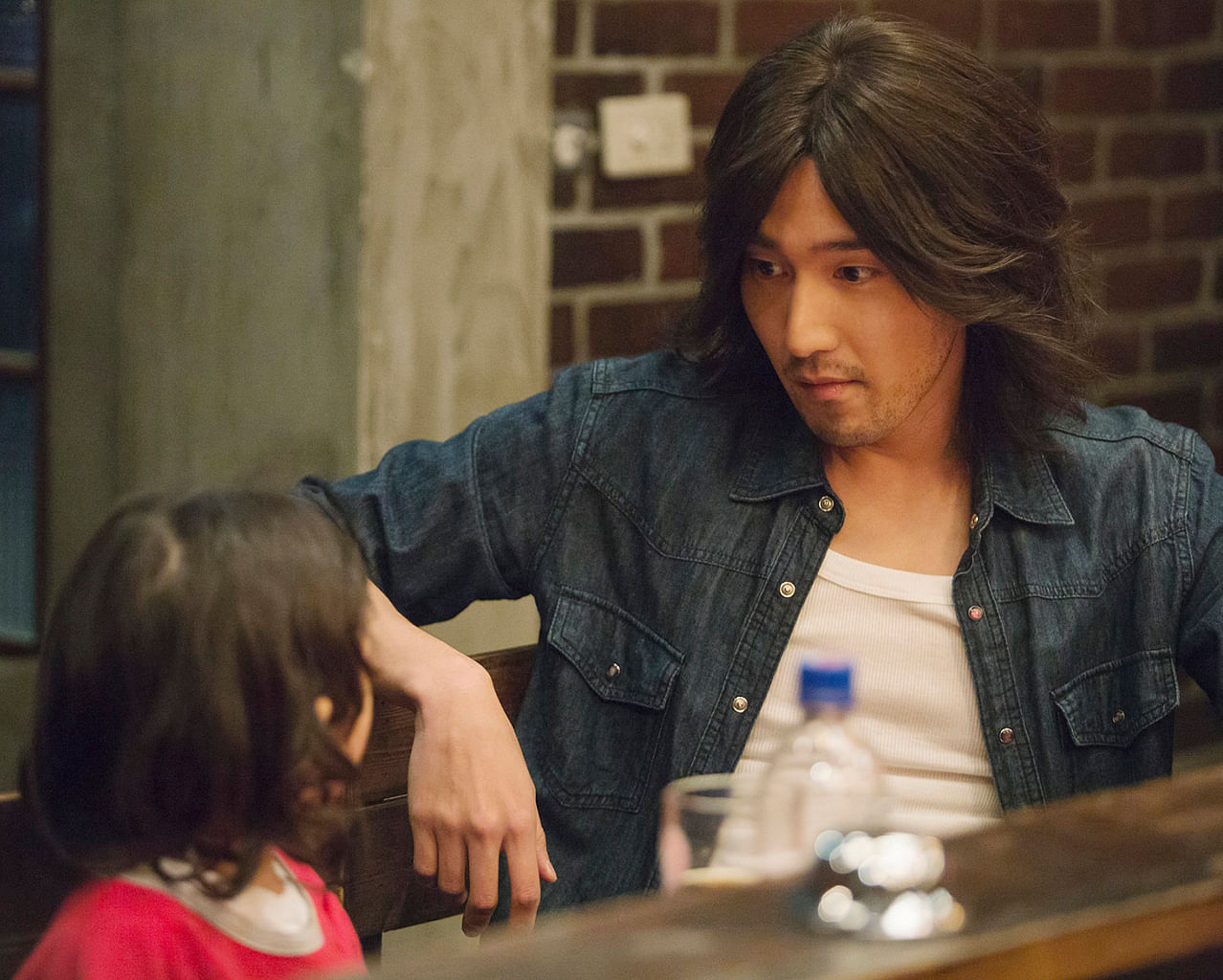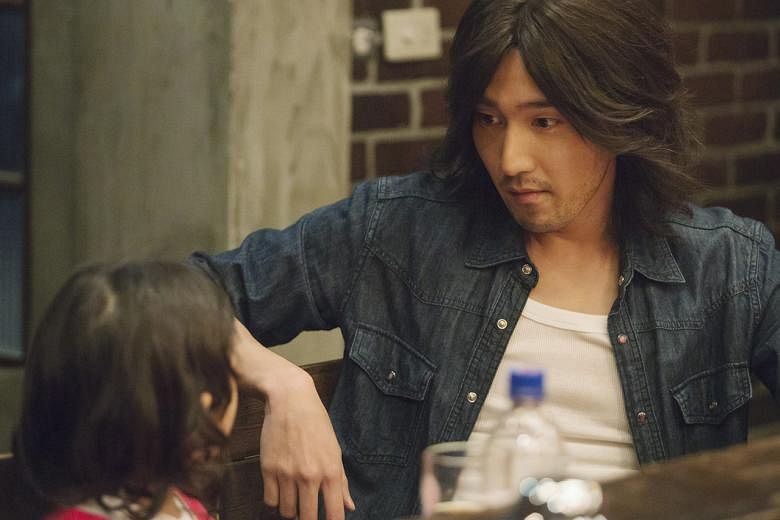So it's a little late, you're peckish and maybe hoping for a quiet night and a light snack.
The Chinese adaptation of Midnight Diner might not be the show for you then. This is the sort of series that insistently dishes up heavy meals, laden with melodrama and meaning, and the owner of this Chinese diner, played by Huang Lei, might talk your ear off.
Not only is he a cook and a confidant in his one-man restaurant in Shanghai, he is also philosophical, witty, warm and caring. This man is offering a package deal: He would like to be your personal late-night host and surrogate family member.
To put it another way, the Chinese adaptation of Midnight Diner is a different kettle of fish from the original Japanese series. Is it better or worse? Well, it boils down to your taste in such things.
Directed by Tsai Yueh-hsun (Meteor Garden, 2001 and Black & White, 2009), the Chinese Midnight Diner, like the Japanese, is an anthology of stories mostly about food and regret. Patrons played by guest actors come and go; they include Mark Chao as a deaf sailor who picks up an abandoned baby; Tien Niu as a drunken mother; and Jam Hsiao as a terminally ill biker.
The Chinese diner also has similar regulars to the Japanese (the sunglass-wearing gangster, the flamboyant nightclub boss, the trio of single women), who like similar dishes (octopus-shaped sausages, omelettes, noodles) and figure in similar stories.

The Chinese show plays differently, though, with the liberal use of searing music, mood-enhancing voice-overs and canned lyricism.
Huang, when he isn't hovering like a mother hen, doesn't trust you to see how lonely a patron is, for instance. He has to spell it out for you: "He is actually a completely lonely man, wandering between the crowd and the sea."
Several stories - fathers separated from daughters, people dying young - come up so often as to be commonplace. Some go on for three episodes, without going anywhere interesting.
But in two of the better stories, the ingredients of humour and pathos come together in ways that are unique yet universal.
One of them, Braised Pork, is about a prickly surgeon (the wonderful King Shih-chieh) who suffers a stroke and becomes a patient from hell. However, his latest live-in nurse, a farmer from Shandong, softens him up after taking secret cooking lessons from Huang.
In the other story, Meteor Garden, where four men in their 30s relive high-school memories in and out of a karaoke bar, food is incidental. Rather, it is pop culture that they take comfort in, especially when one of them has to go on a diet to look good at a former schoolmate's wedding.

Chinese Restaurant has been called a knock-off of the South Korean reality show Youn's Kitchen (2017), which isn't right. More accurately, the Chinese show takes the same question - what if celebrities are dropped in a foreign country and have to get a restaurant up and running in days? - and gives a vastly different answer. For starters, Chinese food and Chinese stars such as Vicki Zhao and Huang Xiaoming enjoy wide fame, even on a remote Thai island.
-
VIEW IT / MIDNIGHT DINER
-
Hub E City (StarHub TV Channel 111), Mondays to Thursdays, 10pm
3/5 stars
CHINESE RESTAURANT
Hunan TV official channel, YouTube, new episodes available on Saturdays Hub E City, from around November
3/5 stars
Unlike Youn's Kitchen, which derives comedy from tourists in Indonesia not knowing they are being served by Korean actors, Chinese Restaurant sees Zhao pretending in front of star-struck vacationers that she is just a Zhao lookalike, "not me".
Also unlike in Youn's Kitchen, there is a lot of real friction in Chinese Restaurant, which produces real sparks.
Zhao, assigned the task of managing the restaurant for 10 days, fights with Huang, her assistant, because they have different ideas on keeping things real on reality television.
Huang thinks it is unrealistic to expect to break even in a few days. Zhao points out that they are running a business in the bubble of a TV show, on a generous budget from the producers, and that they should try to pay them back.
It's certainly a paradox of Chinese reality TV that although the programme is flush with cash - and brimming with product placements - the stars make a show of thrift, drinking up leftover beer and such.
They are rich, but still poor. They are a long way from home, but not quite. As Huang says gnomically to patrons who are leaving the restaurant: "Welcome to China."

